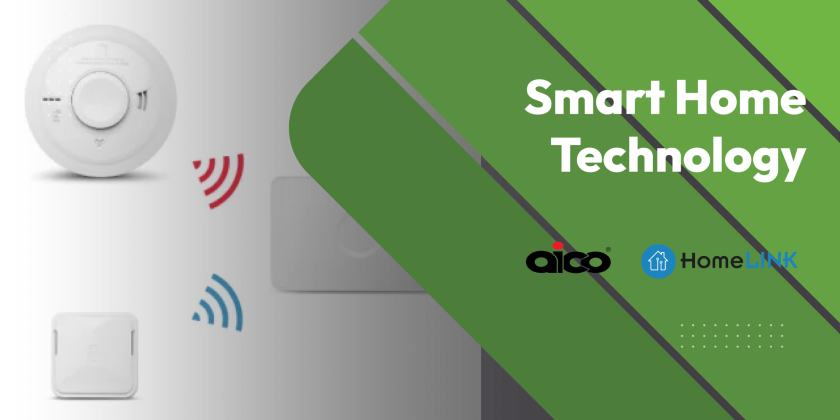As energy costs continue to rise and the call for sustainable living grows stronger, more homeowners are turning to solar panels as a viable solution. Choosing the right solar panel brand is crucial, as it affects both the efficiency and longevity of your investment. With a myriad of options available, it can be daunting to decide which brand offers the best value for your home. In this guide, we will navigate through some of the top solar panel brands, examining their features, reliability, and performance to help you make a well-informed decision. Whether you are new to solar energy or simply looking to upgrade, this guide will provide you with the essential insights needed to power your home effectively.
Understanding Solar Panel Brands
Choosing the right solar panel brand can be the difference between reaping significant savings and facing ongoing issues. Brand reputation plays a crucial role in ensuring reliability and performance. This section will delve into why brand reputation matters and the factors influencing brand choice.
Importance of Brand Reputation
The reputation of a solar panel brand is built on years of consistent quality and customer satisfaction. A reputable brand often signifies well-tested products and reliable performance. Customer reviews and industry recognition can provide valuable insights.
-
Customer Trust: Brands with a strong reputation often have a loyal customer base. Satisfied customers are more likely to share positive experiences, building trust for prospective buyers.
-
Industry Recognition: Awards and certifications from industry bodies can indicate a brand’s commitment to quality and innovation.
-
Product Reliability: Well-established brands are usually associated with durable and reliable products, reducing the risk of malfunction.
For example, SunPower is renowned for its high-efficiency panels and has a solid reputation for innovation. Consumers often cite their satisfaction with SunPower’s long-lasting performance and robust warranty. Consider reviews and industry accolades to gauge a brand’s standing.
Factors Influencing Brand Choice
Several factors come into play when selecting a solar panel brand, including cost, efficiency, and warranty offerings.
Cost is often the primary concern, but it’s essential to weigh initial expenses against long-term savings. High-efficiency panels may cost more upfront but can provide greater savings over their lifespan.
Efficiency ratings indicate how effectively a panel can convert sunlight into electricity. Brands offering higher efficiency panels may provide better value in areas with limited sunlight.
Warranty terms are crucial. A comprehensive warranty can safeguard your investment, covering defects and performance degradation.
-
Customer Support: Reliable after-sales service can greatly enhance the ownership experience.
-
Installation Network: Brands with extensive installation networks may offer more streamlined service.
-
Technological Innovation: Consider brands at the forefront of solar technology advancements for future-proofing your investment.
Leading Solar Panel Manufacturers
In the world of solar technology, not all manufacturers are created equal. Some have risen to the top through innovation, dependability, and performance. In this section, we explore the leading solar panel manufacturers, focusing on established tier-one brands and emerging competitors.
Overview of Tier-One Brands
Tier-one solar panel manufacturers are recognised for their robust financial standing and extensive industry experience. These brands have invested heavily in research and development, resulting in high-quality products.
-
SunPower: Known for its high efficiency and cutting-edge technology. SunPower panels often lead in performance metrics.
-
LG: Offers a diverse range of solar solutions, known for durability and high energy output.
-
Panasonic: Combines reliability with advanced technology, resulting in panels with excellent efficiency ratings.
Emerging Competitors in the Market
The solar panel industry is dynamic, with new players constantly entering the market. Emerging competitors often bring innovative solutions at competitive prices.
For instance, Canadian Solar has quickly established itself as a reliable brand, offering a good balance between cost and efficiency. Their products are often praised for affordability without sacrificing quality.
-
Jinko Solar: Known for its aggressive pricing strategy while maintaining solid performance metrics.
-
LONGi Solar: Focuses on monocrystalline modules, offering high efficiency at a lower price point.
-
Trina Solar: Offers a wide range of panels suitable for different needs, with a strong emphasis on sustainability.
Evaluating Solar Panel Efficiency
Efficiency is a key factor when selecting solar panels, as it determines how much sunlight your panels can convert into electricity. This section will guide you through assessing energy output and understanding efficiency ratings, ensuring you choose the best panels for your needs.
Assessing Energy Output
Energy output is a measure of how much electricity a solar panel can produce. Higher output can mean more savings on your energy bill.
-
Panel Wattage: Higher wattage panels will generally produce more electricity. Consider your household’s energy needs when evaluating options.
-
Location and Climate: Panels in sunnier climates will naturally produce more energy. However, high-efficiency panels can still perform well in less sunny areas.
-
System Size: Larger systems can produce more energy, but they require more space and investment.
Real-world examples show that homeowners in the UK, even with its notoriously cloudy weather, benefit significantly from solar panels. Get insights on solar efficiency here.
Understanding Efficiency Ratings
Efficiency ratings indicate how well a solar panel can convert sunlight into usable electricity. Panels with higher efficiency ratings can generate more power, making them ideal for homes with limited roof space.
For example, panels from SunPower often boast efficiency ratings above 22%, making them some of the most efficient on the market.
-
Why Efficiency Matters: Higher efficiency means you need fewer panels to meet your energy needs, saving space and reducing installation costs.
-
Industry Benchmarks: Most solar panels have efficiencies ranging from 15% to 20%. Anything above 20% is considered high efficiency.
-
Impact on Savings: Higher efficiency panels can provide greater long-term savings on energy bills.
By understanding these ratings, homeowners can make informed decisions, balancing initial costs with long-term benefits. Read more about efficiency ratings here.
Long-Term Considerations for Homeowners
Investing in solar panels is a long-term commitment. It’s essential to consider factors such as warranty, product lifespan, and maintenance. This section will provide insights into these long-term considerations to help you maximise your investment.
Warranty and Product Lifespan
Warranties are a critical aspect of purchasing solar panels. A robust warranty can protect against defects and performance degradation over time.
-
Types of Warranties: Most manufacturers offer product warranties and performance warranties. Product warranties cover defects, while performance warranties ensure panels maintain a certain efficiency level over time.
-
Duration: Standard warranties range from 10 to 25 years. Longer warranties often indicate higher confidence in the product’s durability.
-
Considerations: Evaluate the fine print, as some warranties cover specific issues.
Maintenance and Customer Support
Proper maintenance ensures your solar system operates efficiently, while customer support can provide peace of mind.
Regular Cleaning: Panels should be cleaned periodically to remove dust and debris, which can affect performance.
-
Monitoring Systems: Some brands offer systems that allow you to track performance and identify issues early.
-
Support Networks: Established brands usually provide extensive customer support, ensuring issues are resolved promptly.
Making the Right Choice
Choosing the right solar panels involves balancing various factors. Budgeting and finding a balance between quality and cost are crucial steps. This section will guide you in making decisions that align with your financial and energy needs.
Budgeting for Solar Investment
Planning a budget for solar panels requires an assessment of initial costs and potential savings.
-
Initial Costs: Consider the price of panels, installation, and any additional equipment needed.
-
Government Incentives: Explore subsidies and tax credits that can reduce overall costs.
-
Long-Term Savings: Calculate potential savings on energy bills to determine the return on investment.
Balancing Quality and Cost
Finding the right balance between quality and cost can be challenging but is crucial for maximising investment benefits.
Quality Panels: Often come with higher price tags but offer long-term savings through efficiency and durability.
-
Cost vs. Value: Cheaper panels may save money initially but can incur higher maintenance costs.
-
Recommendations: Invest in brands with a good track record for reliability and performance.


